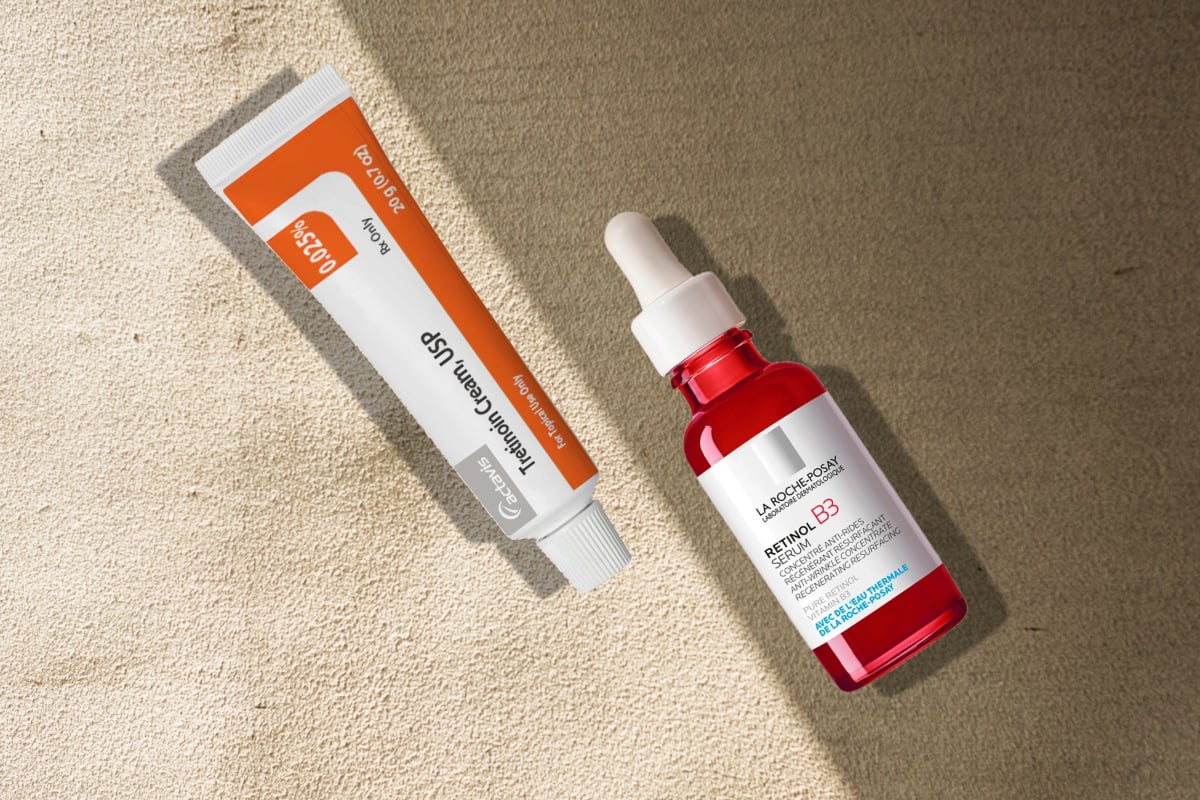Sugarcane has gained quite a reputation on the skincare scene, given that it contains glycolic acid and naturally exfoliates the skin. But did you know it’s not glycolic acid that does the heavy lifting in sugar cane but sucrose? Sucrose is a natural sugar that weighs out about 98% of sugarcane and has a whole package of properties that can make the skin glow. And even though brands already use it in beauty products, sucrose is still an unsung hero waiting in the dark. But not anymore. To get to the bottom of the benefits of sucrose in skincare products, we read every clinical study on it, and we have to admit, it’s quite impressive.
What is sucrose?
Sucrose is table sugar. It comes from sugar cane fields or sugar beet plants.[1] The process of extracting sucrose from these sources involves cleaning, drying, and finally, making those tiny sugar crystals you’re familiar with.[2] In skincare products, these fine crystals play a dual role. Firstly, their texture makes them effective for gentle exfoliation, removing dead skin cells just like scrubs do. Secondly, sucrose can attract and retain moisture, which benefits the skin by maintaining optimal hydration.[3]
What are sucrose esters?
Ever glanced at your skincare label and seen terms like sucrose laurate or sucrose palmitate? These aren’t just fancy words but key components known as sucrose esters. In simple terms, they are the result of mixing sucrose with a certain fatty acid—for instance, lauric or palmitic acid.
Why are they a big deal in skincare? Well, sucrose esters are emulsifiers.[4] This means they hold ingredients together in a mixture. They’re also surfactants, so they remove dirt and impurities, boosting the cleansing action of your products. So, spotting sucrose esters in your face wash? That’s a good sign—it means a more thorough cleanse for you.
Sucrose benefits for skin
Here’s how sucrose can benefit your skin:
Exfoliates and cleanses the skin
Sucrose is an effective cleansing and exfoliating agent in skincare products. It has tiny crystal particles that can gently exfoliate the skin and remove dead cells, sebum, and dirt from the surface.
Hydrates
Sucrose also has water-biding properties.[5] It acts as a humectant that draws moisture from the atmosphere into the skin to increase hydration. Even though it’s not as potent as hyaluronic acid and glycerin at retaining water, it can still provide an extra layer of moisture.
Brightens
A recent study points out that sucrose esters, especially sucrose dilaurate and sucrose laurate, can reduce dark spots on the skin.[6] Here’s how: melanin is the natural pigment in our skin that gives it color. When there’s too much melanin in one area, it can lead to dark spots or hyperpigmentation. These sucrose esters put a gentle pause on melanin production and slow down the transfer of melanin to the skin’s surface cells. While they won’t work miracles, they can assist in evening out skin tone. Another study also suggests that sucrose might be a natural alternative to address skin discoloration.[7]
Is sucrose safe for the skin?
Sucrose is a natural substance, and unless you are allergic to sugar, you should have no problems using it in skincare products. And contrary to popular belief, there’s no evidence to show that applying topical products with sucrose would lead to glycation (the damage to proteins caused by sugar molecules). The reason is that sucrose can’t enter the bloodstream when we put it on our skin, so it does not affect the body’s sugar levels.
In other news, sucrose is a completely safe ingredient for the skin and suitable for everyone. However, if you have sensitive skin, it’s best to perform a patch test to reduce the risk of irritation.
How to use sucrose
Just to set the record straight, rubbing sugar plainly over your face is not the same as using skincare products with sucrose. Sugar has a crystal-like feeling on the touch, so applying it directly on the skin can be too abrasive and irritating. On the other hand, most products containing sucrose are formulated to be used on the face without damaging the skin. You can find sucrose in all kinds of formulations, including serums, emulsions, moisturizers, scrubs, and cleansers. How you use it depends on the product at hand, so read the instructions clearly and apply the product accordingly.
Summary
Though it’s not the most heavily researched ingredient, sucrose can definitely be a great addition to your skincare routine. It hydrates, exfoliates, and cleanses the skin without side effects. However, if you have easily reactive or overly sensitive skin, double-check with your dermatologist to confirm whether you can use it.
- Can you use sugar scrubs on your face?
Sugar scrubs can be too abrasive for the facial skin, so it’s recommended to avoid using them on your face. You can still apply sugar scrubs on your body and use gentler alternatives for the face, such as sucrose-based skincare products.
- Can you use sucrose with AHAs and BHAs?
A lot of products contain sucrose along with AHAs and BHAs, so there should be no problem using them together. However, proceed with caution.
- Is sucrose bad for the skin?
When you eat too much sucrose, it breaks down into fructose and glucose, which can be tough on your skin. But don’t worry; using skincare products with sucrose is safe and doesn’t have the same effects as eating sugar.
Footnotes
Women’s Concepts uses reliable sources, including dermatologists’ insights, clinical trials, and scientific journals, to find accurate information and support all the facts shared in our articles. All statements and claims have clear and legit references. Read our editorial policy to learn more about our sources of information, our process of researching and fact-checking the content, and how our team strives to keep all articles updated, completed, and trustworthy.
- J.M. Cooper, Sucrose, In Woodhead Publishing Series in Food Science, Technology and Nutrition, Optimising Sweet Taste in Foods, Woodhead Publishing, 2006, Pages 135-152, ISBN 9781845690083, https://doi.org/10.1533/9781845691646.2.135.
- https://www.sciencedirect.com/topics/engineering/sugar-production
- Ind. Eng. Chem. 1935, 27, 3, 333–335, Hygroscopicity of Sugars and Sugar Mixtures, Publication Date: March 1, 1935, https://doi.org/10.1021/ie50303a021
- Youan BB, Hussain A, Nguyen NT. Evaluation of sucrose esters as alternative surfactants in microencapsulation of proteins by the solvent evaporation method. AAPS PharmSci. 2003;5(2):E22. doi: 10.1208/ps050222. PMID: 12866947; PMCID: PMC2751529.
- López-Díez EC, Bone S. An investigation of the water-binding properties of protein + sugar systems. Phys Med Biol. 2000 Dec;45(12):3577-88. doi: 10.1088/0031-9155/45/12/305. PMID: 11131185.
- Wang, J., Jarrold, B., Zhao, W., Deng, G., Moulton, L., Laughlin, T. and Hakozaki, T. (2022), The combination of sucrose dilaurate and sucrose laurate suppresses HMGB1: an enhancer of melanocyte dendricity and melanosome transfer to keratinocytes. J Eur Acad Dermatol Venereol, 36: 3-11. https://doi.org/10.1111/jdv.17846
- Bin BH, Kim ST, Bhin J, Lee TR, Cho EG. The Development of Sugar-Based Anti-Melanogenic Agents. Int J Mol Sci. 2016 Apr 16;17(4):583. doi: 10.3390/ijms17040583. PMID: 27092497; PMCID: PMC4849039.




![Does resveratrol in red wine benefit your skin? While sipping on a glass of red wine can be a delightful experience, relying on it for skincare benefits is not the best idea. Sure, red wine contains a smidge of resveratrol, but let's put things into perspective. The concentration of resveratrol in red wine is relatively low. Red wines, specifically Pinot noir from France, typically contain 0.361-1.972 mg of resveratrol per liter.[8] To hit that reference dose of 500mg of resveratrol, you'd need to drink a lot of wine. We're talking about downing anywhere from 100 to 1000 glasses per day. It's a scene straight out of a wine lover's wildest dreams, but definitely not the healthiest approach. Resveratrol Benefits for Skin](https://womensconcepts.com/wp-content/uploads/2022/03/Resveratrol-Benefits-for-Skin.jpg)
